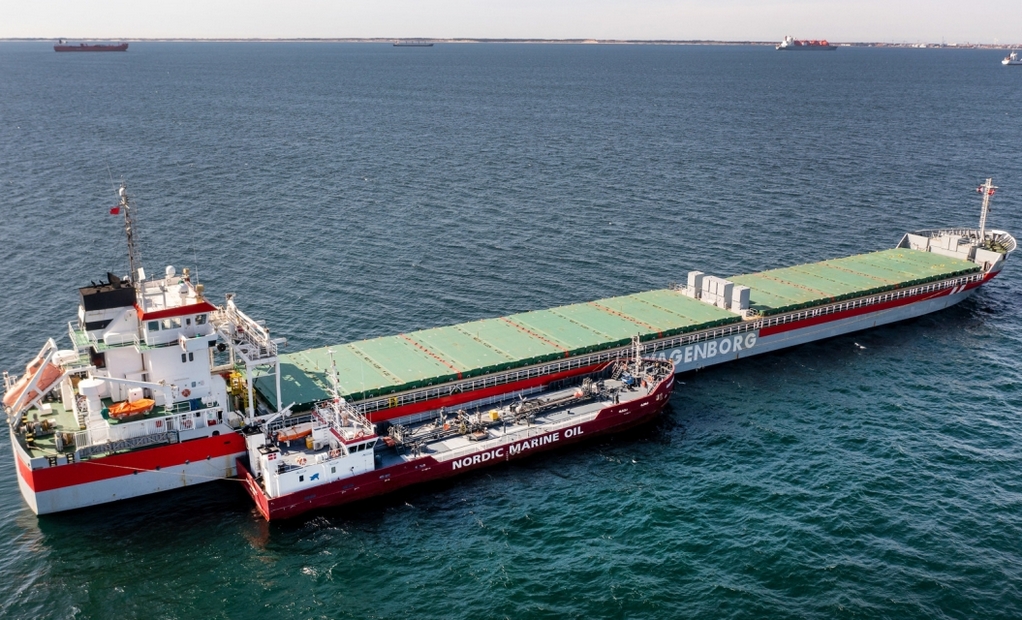Royal Wagenborg said one of its F-class vessels recently completed the firm’s first transatlantic voyage sailing on bio-bunkers.
The company said the shipment, requested by one of its customers, illustrated the ease to switch to the drop-in biofuel bunkers, resulting in a 68% reduction of greenhouse gas emissions on the voyage.
The firm said its entire fleet of MPP vessels is able to bunker the ISO 8217 compliant co-processed marine fuel, since no investment in onboard equipment is required to use this sustainable drop-in marine fuel.
The fuel is produced using ISCC PLUS certified raw materials, such as vegetable oils, used cooking oil, or animal fat, which may reduce GHG emissions up to 80% over the lifecycle, when compared to fossil fuels.


Recent Posts
Ammonia
Azane Unveils New Subsidiary to Drive Ammonia Bunkering Development Oslo, Norway
Fuels Heavy oils
Public sector carbon emissions fall to 3.7 mn tonnes in Singapore
Fuels Heavy oils
UltraTech Cement targets to achieve 85% green energy
Fuels LNG
JCB unveils hydrogen combustion technology